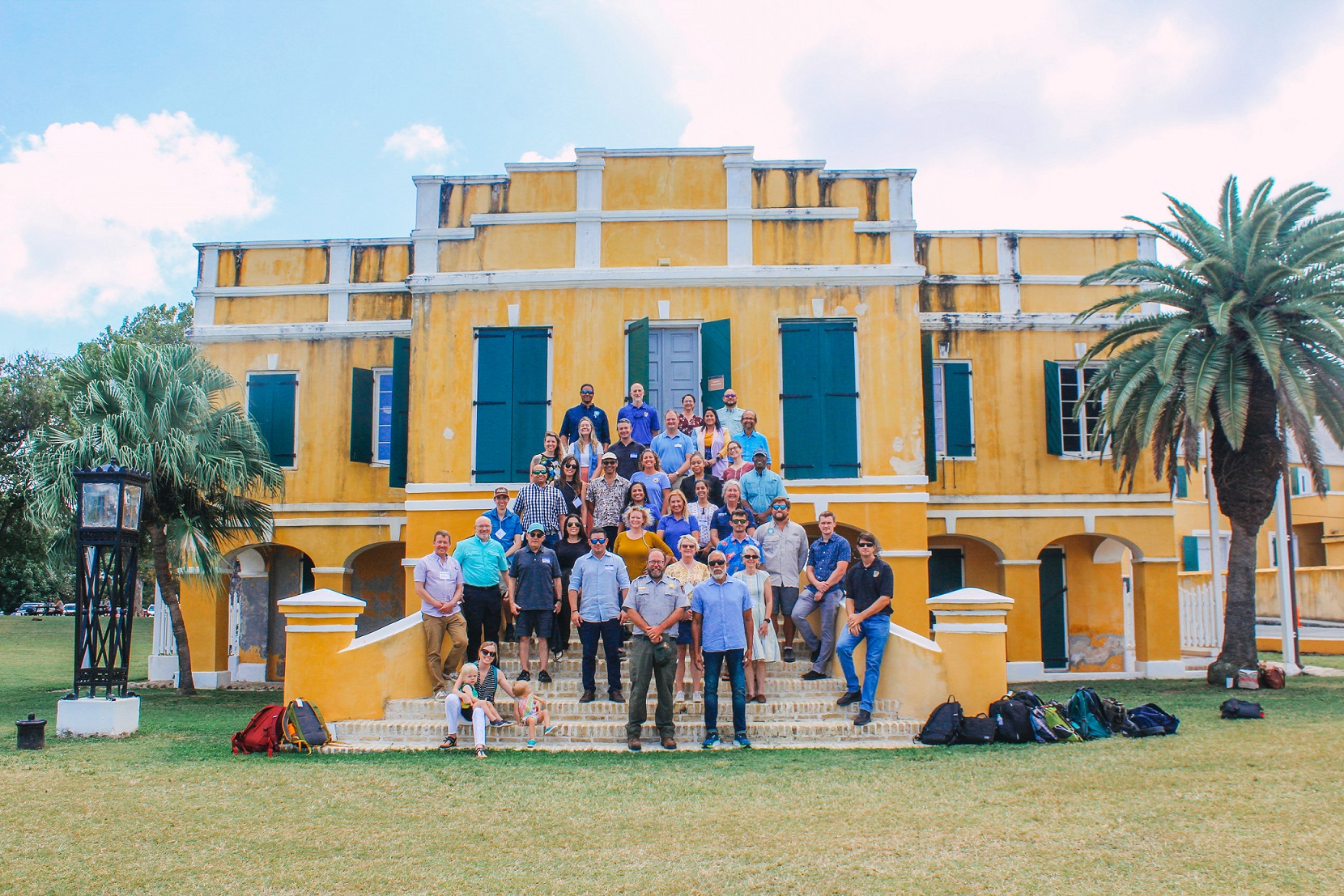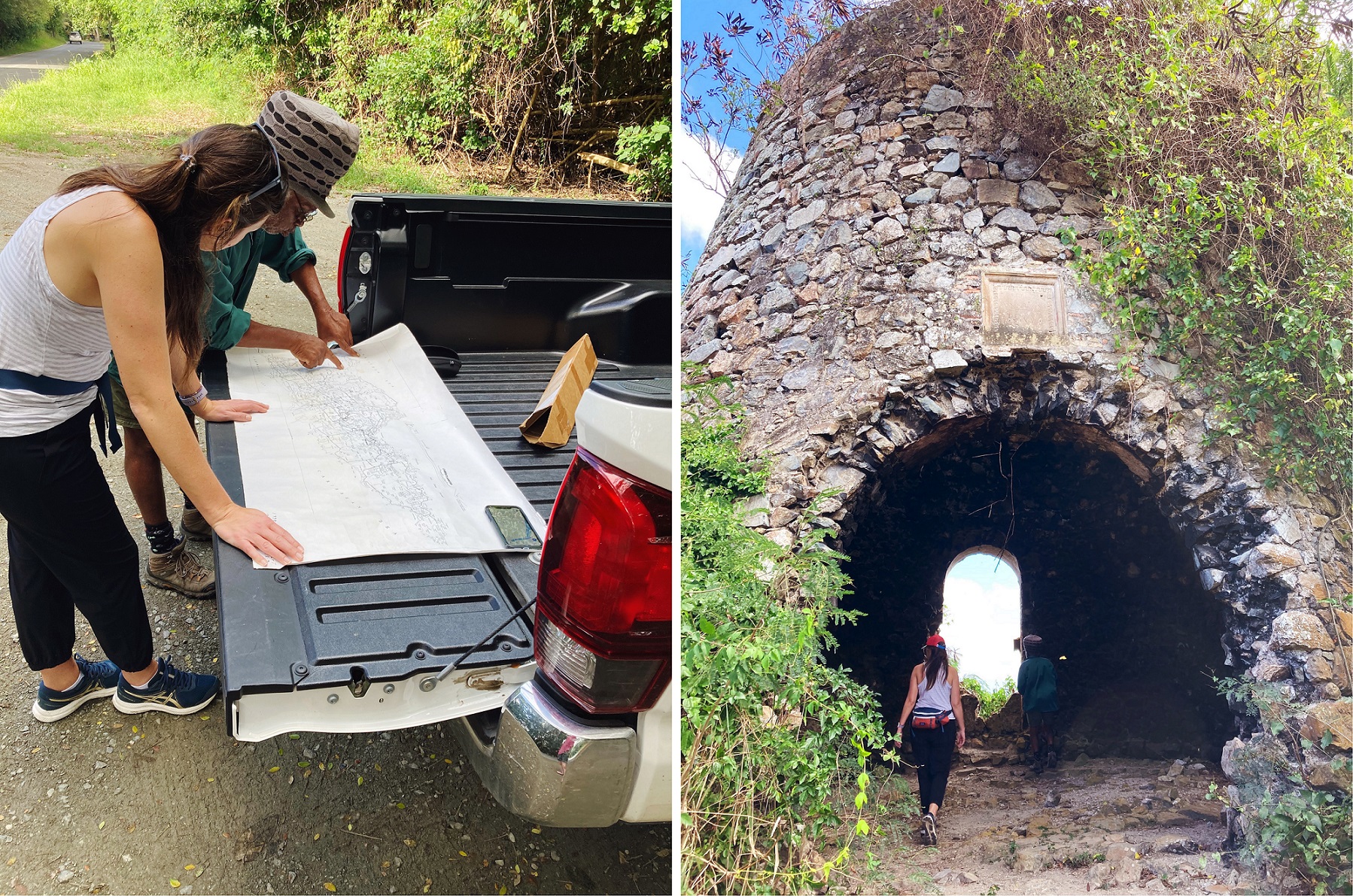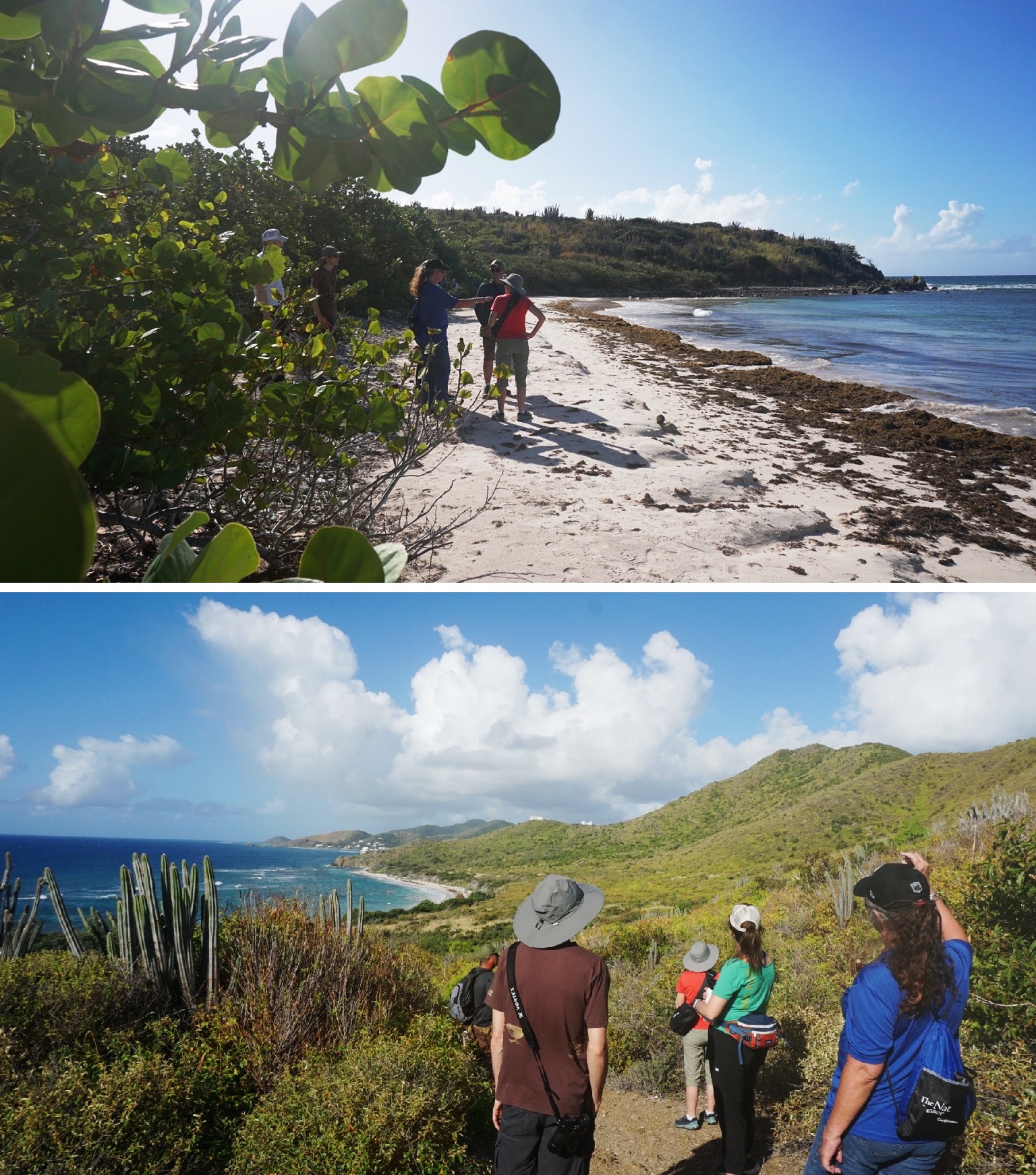Caribbean Community of Practice kickoff meeting in Christiansted, St. Croix

This month, some SECAS staff traveled to St. Croix in the U.S. Virgin Islands for a Caribbean Community of Practice (CoP) kickoff meeting. The meeting, organized in conjunction with the Southeast Climate Adaptation Science Center (SE CASC), had over 45 attendees from 13 different agencies and organizations and spanned two days. The goals for this meeting were to:
- Support the development of a strong community of practice in the Caribbean by creating opportunities to learn about existing work across the region,
- Elicit feedback on the developing Caribbean Blueprint indicators and draft priorities, and
- Engage in discussions about the data inequities and conservation challenges that are unique to the Caribbean.
SECAS staff are in the thick of Blueprint 2023 development, where we are updating the Puerto Rico data and expanding the Blueprint to the U.S. Virgin Islands for the first time! Leading up to this meeting, we hosted several virtual calls to gain insights and feedback as we develop brand new indicators for the Caribbean. Meeting attendees got a sneak peek at the first draft of the 2023 Caribbean Blueprint priorities as half of the first day was dedicated to a mini workshop where we discussed how this early draft was capturing conservation priorities and where it was lacking. There was rich dialogue about the importance of freshwater, the significance of historic cultural resources, the ridges to reef connections, and the economic value of Caribbean natural resources.
Here’s what our partners over at the Southeast Climate Adaptation Science Center had to say about the meeting:
“The Caribbean Community of Practice Meeting was a perfect opportunity for the USGS Southeast Climate Adaptation Science Center (SE CASC) to solicit input from partners about current climate adaptation efforts in the Caribbean and associated priority research/information gaps and priorities. Some barriers and gaps identified include data accessibility, long-term consistent monitoring and modeling data, and decision support (i.e., guidance on how to use relevant science to inform decision-making). The groups also discussed best practices for actionable science in the USVI and PR. Representatives at the meeting agreed that continued engagement through the Caribbean CoP will be a tool for growing partnerships to increase the relevance and accessibility of science. SE CASC will synthesize feedback from the meeting and incorporate elements into development of our next 5-year Science Strategy and will build on the insights and partnerships to expand climate adaptation research in the Caribbean.”
SECAS looks forward to working closely with SE CASC (we like to keep you on your toes with our acronyms) and our Caribbean partners to begin to tackle some of these challenges!

In addition to the meeting, SECAS staff were able to get out in the field with some of our gracious partners. Louise and I spent a day exploring natural and historic sites with “The Bush Man” Dr. Olasee Davis, a professor in the Department of Agriculture at the University of the Virgin Islands. Dr. Davis is a strong advocate for preserving the rich history of Maroon Country and is one of the board members for the Virgin Islands Trail Alliance. A small group was also hosted by Celeste Jarvis, the Virgin Islands Program Director for The Nature Conservancy (TNC), and got to explore TNC’s Jack and Isaac Bay Preserve, where their protection and restoration efforts have significantly increased the number of nesting sea turtles and provided a safe haven for the endangered St. Croix agave (Agave eggersiana).

Our Blueprint team has synthesized feedback from the meeting and already begun implementing indicator improvements and developing new indicators to address comments from our mini workshop. What’s more, getting to engage with partners on the ground in the Caribbean has helped our team to begin to understand the unique challenges our conservation partners in the Caribbean are working to overcome. Louise and I will be the dedicated Blueprint user support leads for Puerto Rico and the U.S. Virgin Islands and are eager to dive in and begin supporting the incredible work our partners are already undertaking to improve the health, function, and connectivity of these critical Caribbean resources.
If you weren’t able to attend the meeting and this blog has given you major FOMO (fear of missing out), don’t worry—we want to hear from you, too! We will be hosting a series of workshops this May to preview draft Blueprint ‘23 and will need your help to better refine our data so that it represents on- the- ground conditions and captures your organizational priorities. I hope you’ll be there! Make sure to sign up for our newsletter so you don’t miss all the good Blueprint 2023 updates to come—you can do that on the footer of any page of the SECAS website.